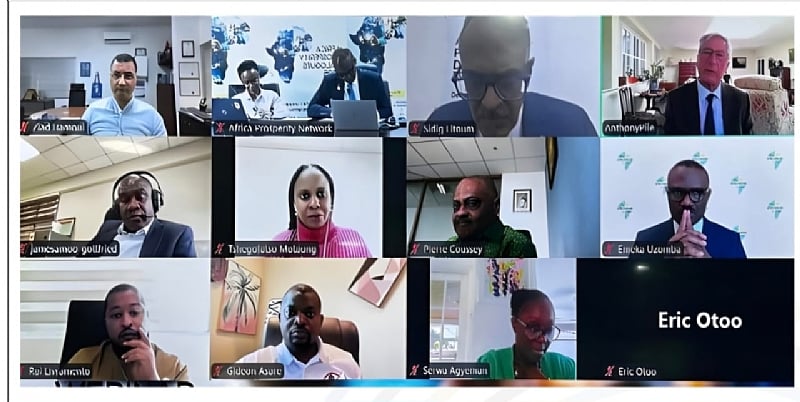Africa’s Infrastructure Deficit: A Barrier to Continental Growth and Integration
Africa faces a significant infrastructure deficit that hinders its economic growth and integration. This deficit manifests in fragmented transportation networks (road, rail, air), unreliable energy supply, inefficient logistics systems, and limited digital connectivity. These challenges severely restrict intra-African trade, people mobility, and overall economic prosperity. The antiquated, colonial-era infrastructure, designed for resource extraction rather than intra-continental trade, exacerbates the situation. This outdated system continues to impede the seamless flow of goods and services within Africa, contributing to high trade costs and hindering economic integration. Addressing this infrastructure gap is crucial for unlocking Africa’s vast economic potential.
The Urgent Need for Infrastructure Financing and Development
Bridging Africa’s infrastructure gap requires substantial investment. The continent’s annual infrastructure funding shortfall is estimated at $130–$170 billion – a figure far exceeding what public resources alone can cover. This deficit leads to significantly inflated intra-African trade costs, estimated to be 30-40% higher than in other regions. Moreover, intra-continental trade remains stagnant at around 30-40%, lagging behind other global regions. The consequences of this underdevelopment are far-reaching, hindering job creation, limiting access to essential services, and stifling economic growth. A concerted effort involving governments, private sector actors, and development partners is crucial to mobilize the necessary resources and expertise for effective infrastructure development. Innovative financial models, public-private partnerships, and strategic resource allocation are vital to address this critical challenge.
The "One Dollar A Day" Initiative: Crowdfunding for Continental Infrastructure
A promising initiative discussed was the "One Dollar A Day" campaign, formally known as the Integrated Africa Infrastructure Growth Fund. This ambitious crowdfunding project aims to mobilize financial support from individuals and organizations across Africa and its diaspora. The campaign employs a dual-track approach. The first track focuses on securing funding from institutional investors, particularly multilateral organizations. The second track targets individual donors and smaller organizations to contribute towards specific infrastructure projects across the continent. This dual-track approach aims to combine large-scale investments with grassroots contributions to maximize impact. The success of this initiative hinges on widespread participation and effective communication to build public trust and ensure transparency in fund management.
Innovative Financing Models and Success Stories
Several innovative financing models were discussed as potential solutions to bridge the infrastructure funding gap. Afreximbank, a key player in African trade finance, proposed several strategies, including infrastructure bonds backed by their guarantees, offering attractive returns of 8-10%. Furthermore, a Pan-African Infrastructure Credit Rating system was suggested to de-risk projects and attract more investors. Blended finance structures, where multilateral institutions cover initial losses, were also proposed. Afreximbank has earmarked $5 billion for cross-border infrastructure projects that align with integration benchmarks, with disbursement planned from Q3 2025. Ghana’s Road Fund provides a successful example of how infrastructure can be financed through a combination of fuel levies, toll revenues, and digital tolling. This demonstrates the potential of leveraging multiple revenue streams to support infrastructure development.
Removing Barriers to Mobility: Visa Restrictions and Aviation Challenges
The webinar also addressed the significant barriers to the free movement of people and goods within Africa. Visa restrictions and limited air connectivity continue to impede trade and people mobility, resulting in higher travel costs and longer travel times. Only a quarter of intra-African air routes are served directly, and visa-on-arrival policies cover just over half of the continent. These restrictions limit business opportunities, tourism, and cultural exchange. Simplifying visa processes and expanding direct air routes within Africa are essential steps towards promoting greater integration and economic growth. Reimagining borders as bridges rather than barriers is crucial for fostering seamless intra-continental travel and trade.
The Accra Compact 2025: A Framework for Action
The webinar built on momentum from the Africa Prosperity Dialogues 2025 in Accra, which resulted in the Accra Compact 2025. This framework encompasses 44 actionable recommendations for African governments, the private sector, and multilateral institutions. Governments committed to streamlining regulations and accelerating projects in key corridors, such as the Lagos-Abidjan and Lobito corridors. The private sector pledged to fund transformative ventures in sectors like rail, renewable energy, and digital infrastructure. Development partners committed to mobilizing substantial domestic capital, with targets reaching up to $2 trillion. The Accra Compact is a significant step towards fostering collaboration and ensuring that infrastructure development aligns with continental integration objectives.
Conclusion: A Call for Urgent and Coordinated Action
With Africa’s population projected to continue its rapid growth, the need for robust infrastructure becomes even more urgent. The African Continental Free Trade Area (AfCFTA), with its vast market of 1.4 billion people and a combined GDP of $3.4 trillion, further underscores the critical importance of investing in infrastructure to unlock the continent’s full economic potential. Bold, coordinated, and timely investments in roads, rails, ports, aviation, and digital infrastructure are paramount for Africa’s future prosperity. The webinar concluded with a shared commitment to pursuing these goals and creating a more connected and prosperous Africa.














